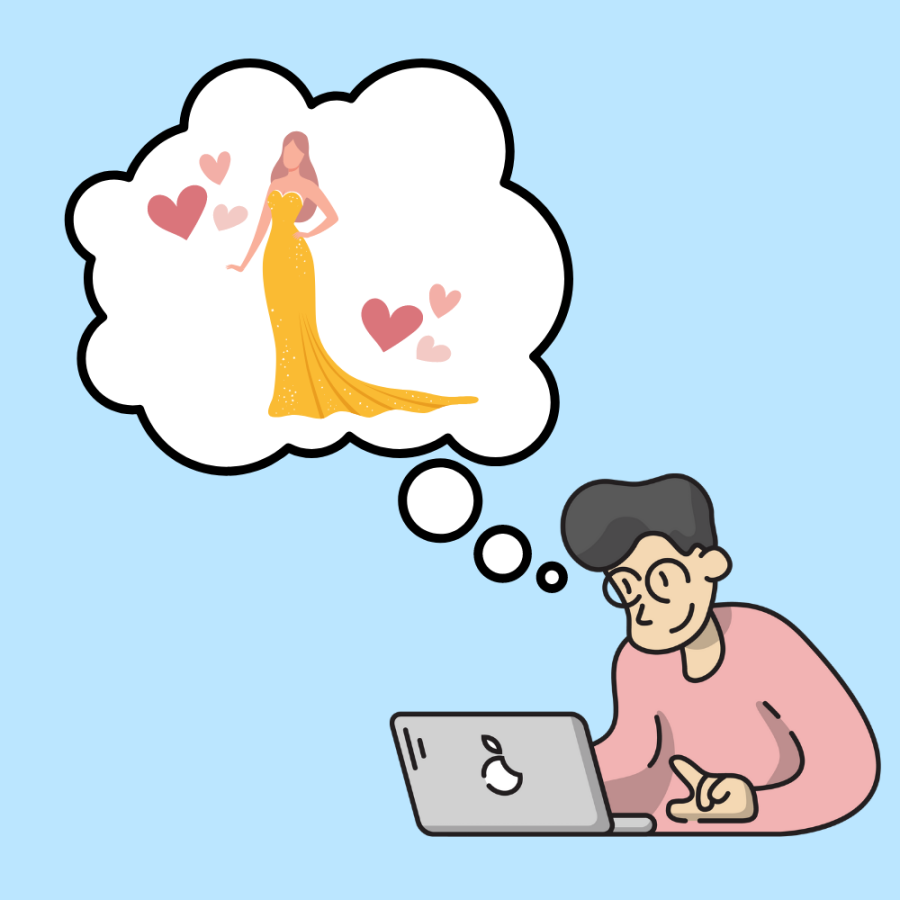Have you ever looked at a celebrity and thought, “If only we met each other in real life, we could’ve been friends?” If you have, you likely have formed a parasocial relationship with the celebrity.
A parasocial relationship is a relationship where one party feels close to the other, despite having little real connection with them. While this unique kind of relationship can form with anyone, certain celebrities market themselves in special ways to more easily become the subject of parasocial fantasy.
The first factor of such fantasies is showcasing an air of wisdom. Many people form relationships with those who serve as role models to them, modeling their own hopes, dreams and goals based on a celebrity. Fans may also look to this person to give them advice, guiding them through a tough situation.
Charm is another major component. Charisma within a person often attracts other people to them, and this holds especially true for public figures. If a celebrity is friendly and kind in their media presence, fans will desire a relationship with them, even feeling like they know eachother.
Junior Rupika Jai Ganesh has seen this happen before, “When celebrities seem more humble and funny, like a ‘regular’ person, I think people feel more connected to them… people are drawn to the celebrities they can fantsize about and this stems from how the celebrity has presented themself to the public,” Jai Ganesh explained.
This phenomenon can be exacerbated by social media. A celebrity might remember fans after seeing them online, comment on their posts or even ask for advice via social media. Though these actions are kind, they don’t communicate any sort of real relationship to most people. To an obsessive fan, however, moments such as these may feel much more personal, drawing them further into obsession.
Social media also offers the ability for celebrities to live more public lives, making them more prone to becoming topics of obsession. When the details of one’s day-to-day experiences are available to anyone, fans feel like they personally know a person– the Kardashians, for example, made people feel close to them after years of reality television. By bearing witness to the family’s most personal and dramatic moments, the general population felt involved in the lives of the Kardashians, feeling a connection towards them.
Another example of this is the Free Britney movement in 2021, a fan-based demand for Britney Spears to be freed from her conservatorship after careful analysis of Spears’ Instagram posts and captions. Though the people lobbying for her freedom didn’t really know Spears, they felt connected to her since she had been in the spotlight for such a long time, sharing so much of herself with the world.
Celebrities like these may depend upon their fanbases, a paradox that Junior Maddie Cox has noticed. “I think that every celebrity has fans that get attached because that’s kind of how they [celebrities] gain traction. Those fans are attached, so they start posting about the celebrity and that gets other people interested,” Cox explained.
On top of platonic parasocial desires, a romantic aspect comes into play from time to time. This goes beyond a simple celebrity crush. Parasocial fans might go to extreme means to prove their “love” for their object of affection. This is seen when real relationships are sabotaged, like in the case of Harry Styles, whose romantic partners have been subject to various forms of harassment throughout his career. In more extreme cases, it results in stalking; Taylor Swift was forced to obtain a restraining order against a fan who claimed to be married to her.
Jai Ganesh has noticed people forming romantic parasocial relationships, “I’ve seen a large amount of attachments formed towards attractive male celebrities in Hollywood, like recently Harry Styles, Pedro Pascal, and some kpop artists,” she said.
Parasocial fans’ image of a celebrity in their minds isn’t real; The actual lives of the celebrities often deviate from expectations. When fans find out, they may become personally offended or hurt, disregarding the fact that real people are unpredictable.
Comedian John Mulaney’s divorce in 2021 caused many of his fans to doubt his character, becoming upset and losing supposed “trust” for him. Though these fans had no personal connections to him, they had seen enough of his comedy to form an image of him in their heads, and even think of him as a friend. When his actions didn’t convey him in the exact light they pictured him in, fans were shocked and upset.
Cox witnessed these reactions, and compares them to other fan responses. “When the celebrity does something unexpected … [fans] feel almost betrayed because the celebrity went outside of what the fan perceived them as,” she elaborated.
Modern media and celebrity culture is designed for us to become invested in the lives of celebrities. To gain a following and be successful, public figures almost require some sort of parasocial relationship with their fans. It’s only healthy to derive entertainment or comfort from a celebrity as long as the truth stays in perspective.
The people we so adore might not be entirely who they seem; they may not give us advice when we need it, and they might never even know who we are, but regardless, humanity’s desire for celebrity connections persists. And sometimes, a relationship only really needs one side.









